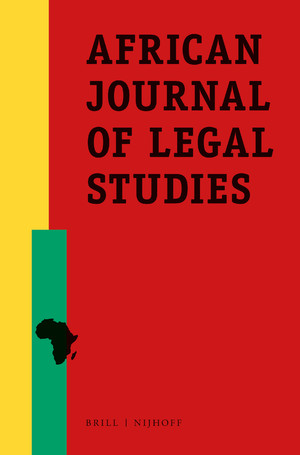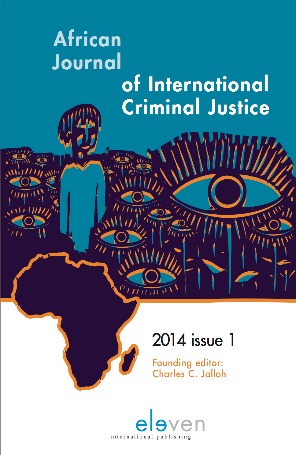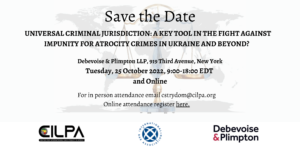CILPA JOURNALS
The Center for International Law and Policy in Africa (CILPA) publishes two peer-reviewed journals in collaboration with Martinus Nijhoff Brill and Eleven International, two leading legal publishers based in the Netherlands.
African Journal of Legal Studies
The African Journal of Legal Studies (AJLS) is a peer-reviewed and interdisciplinary academic journal focusing on human rights and rule of law issues in Africa as analyzed by lawyers, economists, political scientists and others drawn from throughout the continent and the world. The journal, which was established by the Africa Law Institute and is now co-published in collaboration with Brill | Nijhoff, aims to serve as the leading forum for the thoughtful and scholarly engagement of a broad range of complex issues at the intersection of law, public policy and social change in Africa.
AJLS places emphasis on presenting a diversity of perspectives on fundamental, long-term, systemic problems of human rights and governance, as well as emerging issues, and possible solutions to them. Towards this end, AJLS encourages critical reflections that are based on empirical observations and experience as well as theoretical and multi-disciplinary approaches.
It is hoped that articles appearing in the journal will influence public policy in Africa by providing original, useful and timely critiques of legislation, judicial decisions, law reform and other domestic and foreign policy measures that impact on the daily lives of ordinary Africans. In addition to articles, the journal welcomes reports on recent human rights and governance-related conferences, workshops and seminars as well as books for review and lists of recent publications.
African Journal of International Criminal Justice
Africa has been the site of some of the world’s worst atrocities. Africa is also home to some of the most innovative mechanisms, ranging from truth commissions to national and international criminal trials, to address accountability to the perpetrators of violence. Yet, African voices are often marginalized in global conversations about peace, justice and reconciliation. The African Journal of International Criminal Justice (AJICJ) is a refereed and interdisciplinary scholarly periodical that aims to fill this gap. It is a forum for international criminal law and transitional justice issues in Africa and the developing world as analyzed by authors drawn from throughout the continent and the world.
The Journal aims to create the intellectual space for profound scholarly reflection on the phenomenon of atrocity crimes in Africa and national, sub-regional, regional as well as international efforts to combat such crimes through prosecutions, traditional justice approaches or alternative mechanisms such as truth seeking and reconciliation. We hope to stimulate an Intra-South and Global dialogue on the complexities facing societies seeking to transit from war and other collective traumas to peace. With these goals in mind, AJICJ will seek to give voice to a diversity of perspectives on fundamental, long-term and systemic problems concerning justice and accountability, as well as emerging issues, and possible solutions to them.
We are particularly interested in views from below and new streams of scholarship that engage in critical reflections from law and the social sciences based on empirical observations and experience as well theoretical and cross disciplinary methodologies. The Journal is intended for anyone interested in issues of international criminal law and questions of transitional justice. These include academics, government and international tribunal officials, practitioners such as judges, attorneys, legal assistants, students, activists as well as any individuals and NGOs concerned with how best to understand the place of law and other transitional measures in war and mass violence.
In addition to scholarly articles and reports from the field, AJICJ will contain a section for book reviews, case reports on significant national and international decisions from African and other international courts and tribunals, as well as special sections on African state practice and shorter comments on current events and compilations of hard to obtain documents. The Journal will seek to encourage creativity and innovation by awarding several prizes for the best articles published in each volume: one to a doctoral student, the second for an author under 40, and another for a scholar, of any age, who has spent at least 5 years in academia in an African university.



